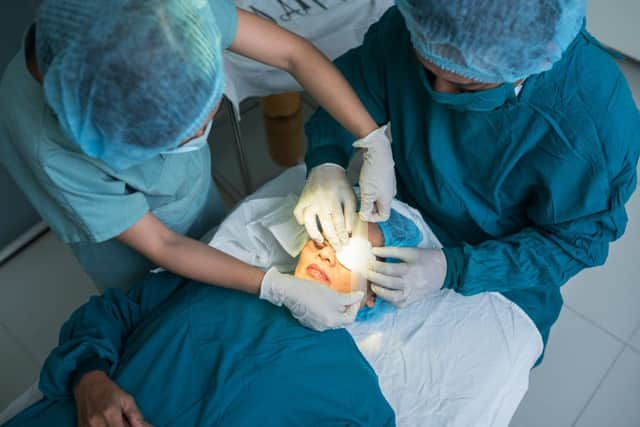Private eye operations soar to help NHS meet targets


Questions have been raised about the capacity of the NHS to carry out routine operations after a parliamentary question revealed the number of private cataract procedures has quadrupled since 2012.
More than 2,700 vital eye operations were done in the private sector last year, compared with 600 in 2012, while a decade ago it was only 250.
Advertisement
Hide AdAdvertisement
Hide AdHealth boards pay for people to go to private hospitals if they do not have the capacity to cope, in terms of beds, staff and equipment.
The majority of private operations were done by NHS Lothian, which was forced to act as waiting times for routine operations had spiralled to record levels. The health board has now stopped funding private operations, in a bid to save cash, maintaining it has capacity to cope.
Ministers insist that plans for a £200m network of elective treatment centres would help struggling boards, although no date has been set for work to begin.
The figures prompted questions over how well hospitals are coping with the challenges of the ageing population as budgets are tightened.
Scottish health boards are facing more than £1 billion worth of cuts over the next four years.
Conservative public health spokesman Miles Briggs said: “The SNP talks a lot about how it is totally against the involvement of the independent sector in the provision of health services but these figures show that in reality the number of cataract operations in the independent sector has jumped in recent years under the SNP’s stewardship of the NHS. The SNP should be honest about its need to rely on private hospitals and admit that it raises questions about the NHS’s capacity currently to deliver routine operations to all who need them within waiting time targets.
“Patients, especially older people, who do not receive treatment at an early stage can end up seeing their health deteriorating, leading to falls and often problems living independent lives at home.”
The growing elderly population has led to an 80 per cent increase in cataract operations on the Scottish NHS since 2000.
Advertisement
Hide AdAdvertisement
Hide AdCataracts occur when the lens of the eye goes cloudy with age and affect around a third of people over 65 in the UK. The routine surgery only takes about 30 to 40 minutes but can transform the lives of sufferers.
A spokesperson for the sight loss charity RNIB Scotland said: “Cataracts are a very common eye condition and, fortunately, the treatment is quite straightforward. The only effective treatment is surgery to remove the cloudy lens in your eye and replace it with an artificial implant.”
Health Secretary Shona Robison said: “We recognise that a growing elderly population increases demand for services like cataract operations, which is why we are investing £200 million establishing a network of five new elective and diagnostic treatment centres, including one in Edinburgh.
“Last month the First Minister announced an extra £5m funding for the Golden Jubilee National Hospital to build a prototype ophthalmology theatre and outpatient clinic to treat more cataract patients in the NHS every year.”